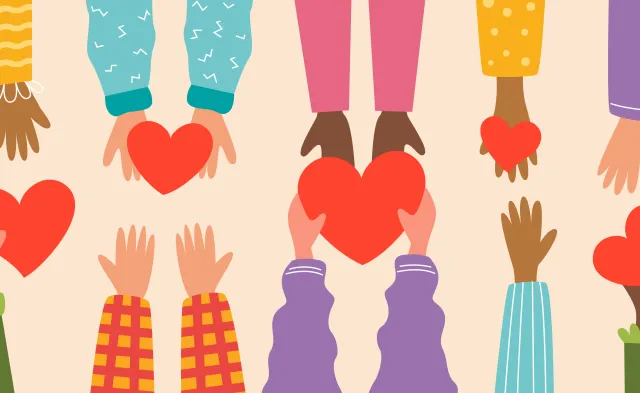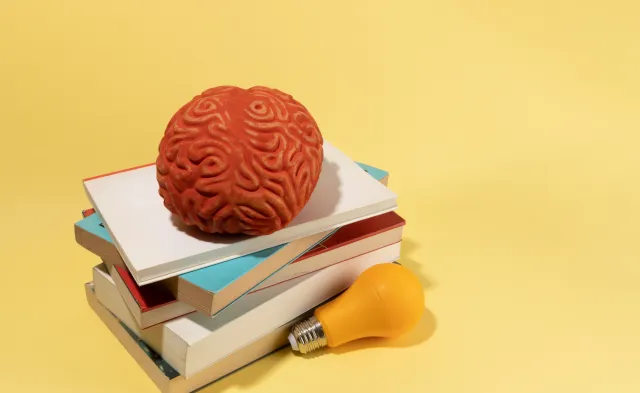Latest
Cultural Awareness and Influences on Mental Health
May 21, 2024

There is a common misconception that mental health only has to do with the individual person. However, research shows that genetics, community, social factors, and culture all play a role in one’s mental health, including its impact internally and externally, as well as the extent of available treatment—if resources are available at all.
Culture is often seen as a set of established beliefs held by a certain group of people that have been developed across generations. A person’s culture may impact their understanding and acceptance of a psychiatric mental health disorder and diagnosis. Essentially, culture can determine whether someone acknowledges that something may not be normal or that a previous behavior has substantially changed. It can affect their decision to pursue help, what types of help they seek, the coping styles and social supports they have, and the degree of stigma they attach to mental illness.
While nurses must care for their patient's diverse physical needs, they also have a responsibility for their mental health. Nurses must incorporate these cultural needs and beliefs into their nursing practice to provide sensitive, individualized patient care. Culture may also play a role in the patient’s perceptions, and experiences with healthcare and illness.
How Mental Health Is Perceived
Take a moment to consider how your background can impact your understanding of a mental health diagnosis. Did you grow up surrounded by the stigma that mental health was not something to be discussed or that it wasn’t real? Or were you educated on the impact of mental health on the body and all that it entails? After reviewing these questions and your answers, it might be concluded that your outlook was impacted in some way by your environment.
How you were raised can deeply impact how a mental health diagnosis is perceived. Based on these views, nurses can implement different strategies and interventions to accommodate these various culture-bound perceptions.
How Symptoms Are Expressed
Consider how you might react if a patient came to you expressing these symptoms:
- Restlessness
- Increased heart rate
- Breathing rapidly (hyperventilation)
- Sweating, trembling, and feeling weak or tired
- Experiencing gastrointestinal (GI) problems
- Trouble sleeping
As a healthcare practitioner, you can identify the common symptoms of generalized anxiety disorder, but your patient may not recognize these indicators as a physical manifestation of their anxiety. This may happen more frequently than you realize. The effects of one’s culture can also affect which symptoms someone chooses to discuss. According to research, Asians with depression tend to focus on physical symptoms while underreporting mood and anxiety symptoms. This has led to under-recognition and undertreatment of depression among the Asian population.
Healthcare providers must be cognizant of the fact that some expressed symptoms may be culturally driven and without any knowledge of their psychiatric mental health signs and symptoms.
How You Cope with Stress
Culture also impacts how some groups cope with stress. While some de-escalate their stress through open discussion, others choose an avoidance route where they might ignore the stress or its accompanying emotions. For example, African American groups are more likely than Caucasians to handle personal problems and distress on their own or to rely on their spirituality for support than to seek out external resources.
If you have access to an environment where you feel supported and heard, you may be more willing to seek help with your mental health. Research indicates that minority groups within the United States are less likely to seek treatment and are also more likely to delay getting treatment than Caucasians in this nation.
Who Will You Ask for Help
Your cultural experience can also determine the kind of help that is sought for psychiatric mental health. Research shows that minority groups within the United States are more likely to seek treatment for a mental health disorder outside of a mental health professional. This can include their primary care physician and non-healthcare resources such as a member of the clergy or nontraditional healers.
Though nurse practitioners have the resources to assist patients with their mental health, they may not always be a comfortable option. Nurses must develop and integrate open-mindedness which can lead to innovative, non-traditional, alternative nursing interventions such as spiritually-based therapies like meditation and anointing to provide care for their patient.
It's important to recognize that psychiatric mental health professionals, including nurses, are influenced by their own cultural backgrounds. To provide the best care, you and your fellow healthcare providers must work to overcome any cultural biases you may hold toward individuals with mental disorders or other health conditions to ensure you can effectively treat and help your patients. Nurses, in particular, should acknowledge their own cultural biases and strive to approach every client with understanding, acceptance, and respect, regardless of differences in cultural practices, values, beliefs or perceptions.
Learn More About Our Career Programs
BLS pay estimates calculate the median annual wage for various occupations. Per the BLS the median wage for an occupation is: "The wage at which half of the workers in the occupation earned more than that amount, and half earned less. Median wage data are from the BLS Occupational Employment and Wage Statistics survey." Bureau of Labor Statistics (BLS), U.S. Department of Labor, Occupational Outlook Handbook 2024. BLS median wage estimates do not represent entry-level wages and/or salaries. Multiple factors, including prior experience, age, geographic market in which you want to work, and degree level and field, will affect career outcomes, including starting salary and earnings as an experienced employee. Herzing neither represents that its graduates will earn the median salaries calculated by BLS for a particular job nor guarantees that graduation from its program will result in a job, promotion, particular wage or salary, or other career growth.
Latest
Recent Blog Posts
Subscribe to our Newsletter
Get the latest news you need to know, from study hacks to interview tips to career advancement. Have it delivered right to your inbox biweekly.








